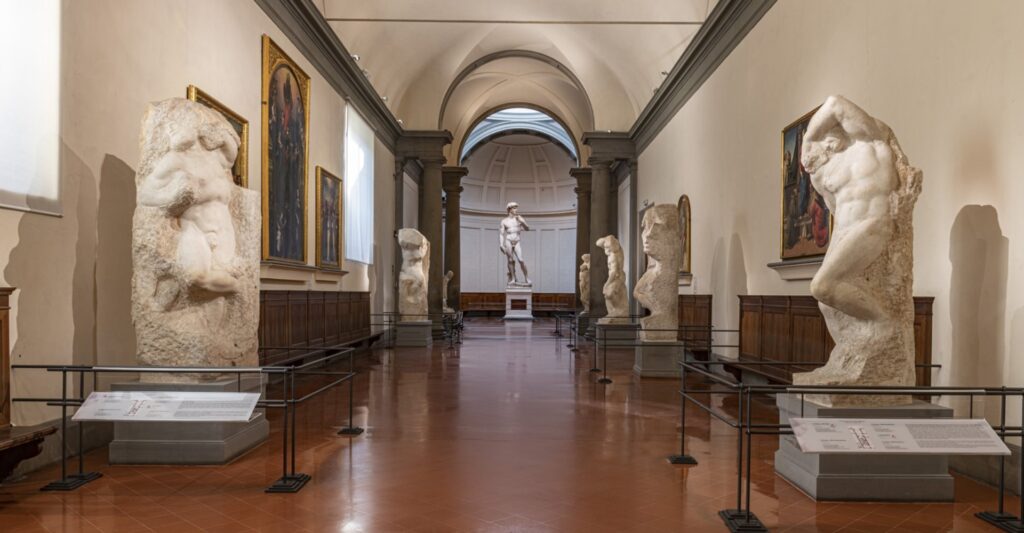Here is a one-page plot summary of the novel’s first draft as it stands today.
Book I A Young Man Introduced to the Liberal Arts
Prologue – April 26, 1478: The day of the Pazzi Conspiracy, in which Lorenzo “the Magnificent” de’ Medici escapes an assassination attempt, nine-year old Nico senses something is wrong in Florence.
One – A Young Man Introduced to the Liberal Arts (September 1487): Beginning a new semester at the Florentine studium, 18-year-old Nico reunites with old friends, makes a new friend, has girl trouble, considers ancient truths, debates modern ideas, and tries a new drug.
Two – The Day Lorenzo Died (April 1492): Now a low-level secretary at the Signoria, Nico hears an unsettling sermon by Savonarola; attends one meeting at the Palazzo della Signoria with his boss and eavesdrops on another; has lunch and a non-metaphorical game of chess with his volatile friend Giovanni di Pierfrancesco de’ Medici; plays a supporting role in Elektra starring Alessandra Scala; is injured in a fateful barroom brawl; and at midnight hears the announcement that Lorenzo “the Magnificent” has died. Also, girl trouble.
Three – The Black Museum (January 1494): With the official Florentine delegation, Nico attends the funeral of King Ferrante of Naples. Rumors say King Charles of France plans to invade Italy and claim the Naples throne. French diplomat Commines takes Nico and his friend Francesco Vettori to The Black Museum, where Ferrante kept the mummies of his murdered barons.
Four – The Flood (March 1494): Florence is deluged by rain and the flooding Arno River. Is this a wrathful God’s heavy-handed foreshadowing of a ruinous French invasion? Or an Epicurean example of nature’s indifference to mankind? Strangers with gold stitching on their sleeves hand letters to Nico. Also, more girl trouble.
Book II Vendemmia
Five – Itinerarium (May 1494): Nico travels to Rome where Italy’s five most powerful cardinals confer to avert the French invasion. It goes poorly. At the convent hosting the conference, a pretty novice offers Nico mushroom soup and things get weird.
Six – The Lion and the Fox (August 1494): Nico receives a series of peculiar letters from his exiled friends. He tries to decipher what he suspects is a coded message. While Florence’s leaders argue, Nico and his co-worker, Gus, assess the letters and the city’s defenses. Those assessments are alarming. Then, Nico and his family share a holiday meal with neighbors and friends at their townhouse, an evening of respite before everyone must decide whether to stay in Florence and fight, or flee.
Seven – Percussina (September 1494): Between a drought and Piero’s increasingly repressive rule, Florence has become unbearable. Nico spends the month at the family farm in the hills. While the quiet village goes about its business, Nico corresponds with his exiled friends in Milan, Ravenna, and France and plans for their return. The French draw closer to Tuscany and the news of their vicious sack of Rapallo shakes the complacency of the village. Nico and his sister Prima have girl trouble and boy trouble.
Book III Catastrophe
Eight – Pegasus (October 1494): The Signoria sends Nico to Livorno and Pisa in an effort to keep Tuscany unified against the approaching French. But Italy disintegrates politically, and Nico discovers that, in the view of some others, Florence is the villain, not the hero, of this story.
Nine – Catastrophe (November 1494): The French march through Tuscany. Nico’s exiled friends return to Florence. Piero de’ Medici falls. The Frate rises.
